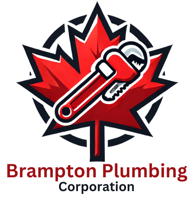Plumbing Solutions for Walk-In Clinics
Ensuring a Safe and Efficient Healthcare Environment
COMMERCIAL SERVICES
11/15/20243 min read


Walk-in clinics play a vital role in providing accessible healthcare to the community. However, with high volumes of patients and constant usage of medical equipment, their plumbing systems must be reliable, safe, and efficient. Effective plumbing ensures that walk-in clinics can operate smoothly and maintain a sanitary environment. Let’s explore the unique plumbing needs of walk-in clinics and how to maintain a healthy plumbing system that supports healthcare operations.
Key Plumbing Considerations for Walk-In Clinics
Water Supply and Accessibility Consistent access to clean water is crucial in any healthcare setting, and walk-in clinics are no exception. Whether it's for patient care, cleaning medical instruments, or maintaining hygiene standards, water is essential for day-to-day operations.
Challenge: Interrupted water supply can hinder medical procedures, cleaning, and other clinic operations.
Solution: Ensure that your plumbing system is designed to provide a steady, reliable supply of water to all areas of the clinic. Regular maintenance, including checking pressure levels and inspecting supply lines for leaks, will prevent disruptions.
Effective Drainage Systems Walk-in clinics generate significant amounts of wastewater, including used medical equipment, cleaning fluids, and general sanitation waste. A well-maintained drainage system is essential to safely handle this wastewater while preventing backups and contamination.
Challenge: Clogged drains or improper drainage systems can lead to unpleasant odors, slow drainage, or even flooding.
Solution: Install high-quality drains in critical areas like restrooms, examination rooms, and medical stations. Keep drains clear by scheduling regular maintenance, including cleaning and inspections. Using commercial-grade materials that are resistant to blockages will help maintain a hygienic and efficient plumbing system.
Sanitation and Hygiene Needs Walk-in clinics must comply with strict health and safety regulations, especially regarding sanitation. Plumbing plays a critical role in maintaining hygiene by providing clean water and facilitating proper waste removal.
Challenge: Poor plumbing can contribute to unsanitary conditions, increasing the risk of infection and creating an uncomfortable environment for patients and staff.
Solution: Install touchless faucets, automatic flush toilets, and well-maintained handwashing stations to minimize cross-contamination. Additionally, ensure all plumbing fixtures are easy to clean and made from materials resistant to bacteria growth.
Handling Medical Waste Medical clinics handle a variety of waste materials, from used syringes to soiled materials. These waste items must be disposed of properly to ensure the safety of patients and staff.
Challenge: Improper disposal of medical waste can lead to blockages and plumbing malfunctions.
Solution: Work with professionals to ensure your plumbing system includes dedicated lines for medical waste disposal, such as specialized waste pipes for hazardous materials. This keeps your general plumbing system free from contamination and ensures compliance with healthcare standards.
Temperature Control for Hot Water Systems Hot water is necessary in a walk-in clinic for sterilization of medical tools, cleaning purposes, and patient care. It's crucial to maintain a consistent and reliable hot water supply throughout the clinic.
Challenge: An unreliable hot water system can disrupt procedures that rely on sterile tools and cleanliness.
Solution: Invest in commercial-grade water heaters designed for healthcare settings, ensuring that they meet the clinic's demand without risking sudden breakdowns. Regular inspections and maintenance will keep the hot water system functioning smoothly.
Plumbing Maintenance Tips for Walk-In Clinics
Routine Inspections Preventive plumbing maintenance is essential for ensuring that your walk-in clinic’s plumbing system is always in optimal working condition. Schedule regular inspections to identify potential issues before they escalate into costly repairs.
Tip: Focus on high-use areas such as restrooms, examination rooms, and medical supply stations, and make sure pipes and fittings are in good condition.
Leak Detection Water leaks can lead to serious structural damage and increased operating costs. Be proactive in detecting leaks and repairing them promptly to avoid disruptions to clinic operations.
Tip: Invest in leak detection systems that can alert you to potential issues before they cause damage to your clinic’s infrastructure.
Drain Cleaning and Maintenance Regular drain cleaning is essential for preventing blockages and ensuring wastewater is properly disposed of. Schedule professional drain cleaning to remove any buildup and keep your plumbing system functioning optimally.
Tip: Use natural drain cleaning solutions or call in professional plumbers to ensure drains are clean and free-flowing.
Plumbing System Upgrades Walk-in clinics grow and change over time, so it’s essential to ensure your plumbing system can keep up with increasing demand. Consider upgrading plumbing fixtures or systems as needed.
Tip: If your clinic has expanded, consult with a plumber to ensure that your plumbing system can accommodate the increased water flow and waste disposal needs.
Why Choose Brampton Plumbing Corporation for Your Walk-In Clinic?
At Brampton Plumbing Corporation, we understand the unique plumbing challenges of walk-in clinics. Our experienced plumbers are skilled in providing efficient plumbing solutions that meet the high standards of healthcare facilities. From regular inspections to specialized waste management solutions, we ensure that your plumbing system is always running smoothly.
Contact Brampton Plumbing Corporation for reliable, healthcare-focused plumbing services today!
Brampton Plumbing Corporation
Building Trust, One Pipe at a Time.
Contact
bramptonplumbingcorp@gmail.com
(647) 819-7072
COPYRIGHT © 2020-2024 Brampton Plumbing Corporation






